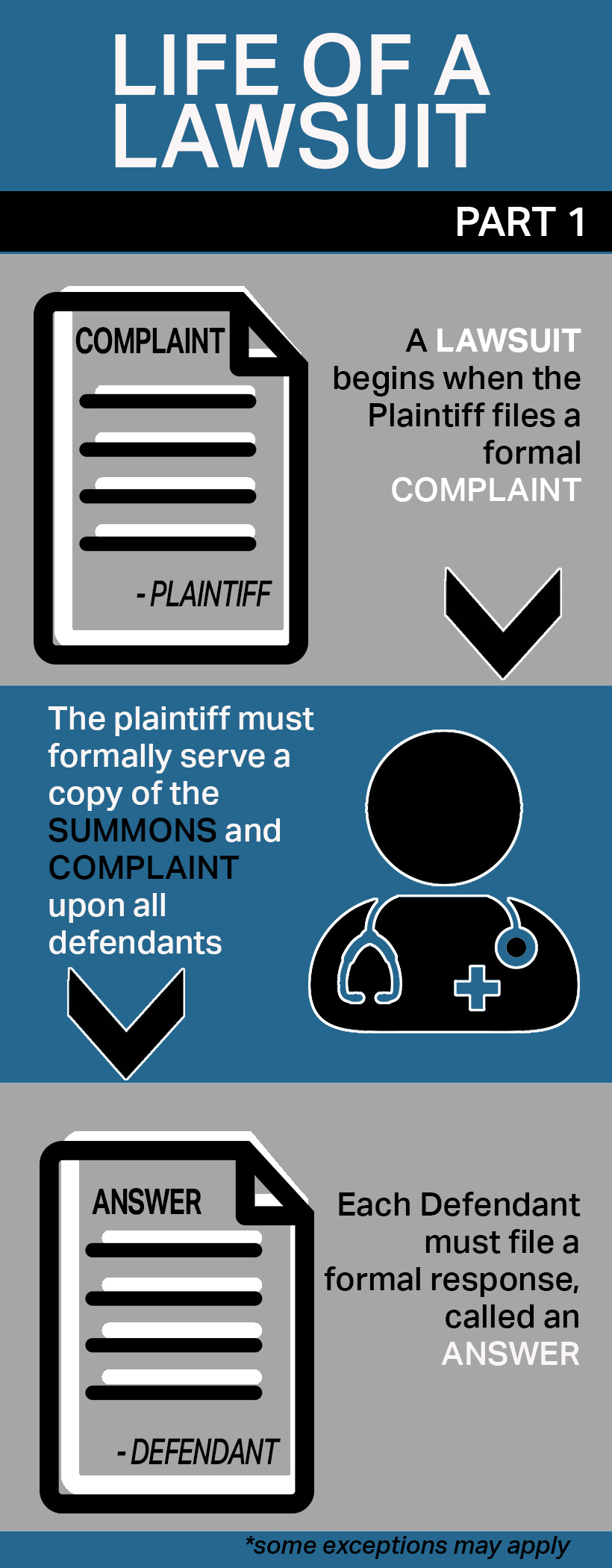Med Mal 101: Back to Basics is 12-part series produced by Friday, Eldredge & Clark. Written by the attorneys in the Medical Malpractice Group, the content is designed to give physicians and other healthcare providers information they need to know about malpractice litigation.

When a patient sues a medical care provider for malpractice, the patient must initiate the lawsuit by filing a formal document called a “complaint.” There are some exceptions for cases involving children, but a complaint generally must be filed within two years of the date of alleged injury. A complaint must include information about who is bringing the lawsuit (the “plaintiff”), the parties sued (the “defendants”), the court where the case is filed, and “facts upon which relief can be granted” under Arkansas law, which is typically a brief recitation of the errors alleged.

When a complaint is filed with the court, a summons is issued which provides notice to the defendants of the lawsuit. The plaintiff is required to formally serve all defendants with a copy of the summons and complaint within 120 days from the date the complaint was filed with the court. Service is usually accomplished by mail or by personal delivery via a process server.
Once a defendant is served with a summons and complaint, he or she is required to file a formal response called an “answer” within 30 days of service. In this document, the defendant is required to admit or deny the allegations set out in a plaintiff’s complaint. If a defendant fails to file a timely answer, a default judgment may be entered and could preclude a defense.
For this reason, it is very important for medical care providers to immediately notify their insurance carriers and attorneys as soon as they are notified about a pending lawsuit.
The information was written by the attorneys in the Medical Malpractice Group at Friday, Eldredge & Clark, LLP. This is not a substitute for legal advice and should be considered for general guidance only. For more information or if you have further questions, please contact one of our Medical Malpractice Attorneys.
The 12-month series will include the following topics:
- Part 1: How a Lawsuit Gets Started - Jan. 2019
- Part 2: Responding to a Complaint - Feb. 2019
- What is the Legal “Standard of Care” in Arkansas?
- What is Considered Malpractice Under the Law?
- What Happens If There is a Bad Outcome That Could Not Be Avoided?
- What is a Medical Injury?
- You Received A Subpoena ...Now What?
- Information That is Shared About a Provider During a Lawsuit
- Depositions - What to Expect
- Motions, Settlements and Trial
- What to Expect at Trial
- The Appeals Process